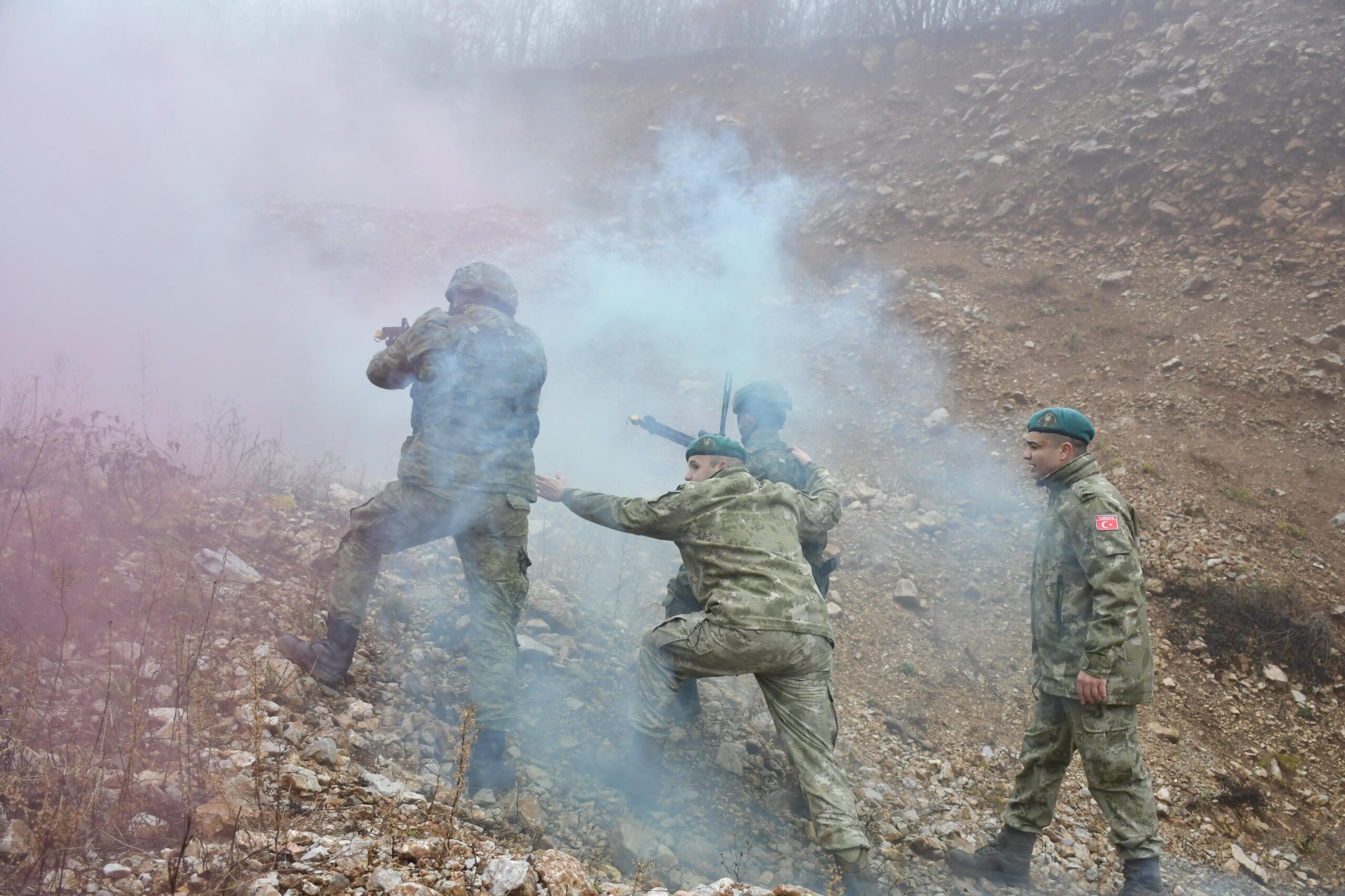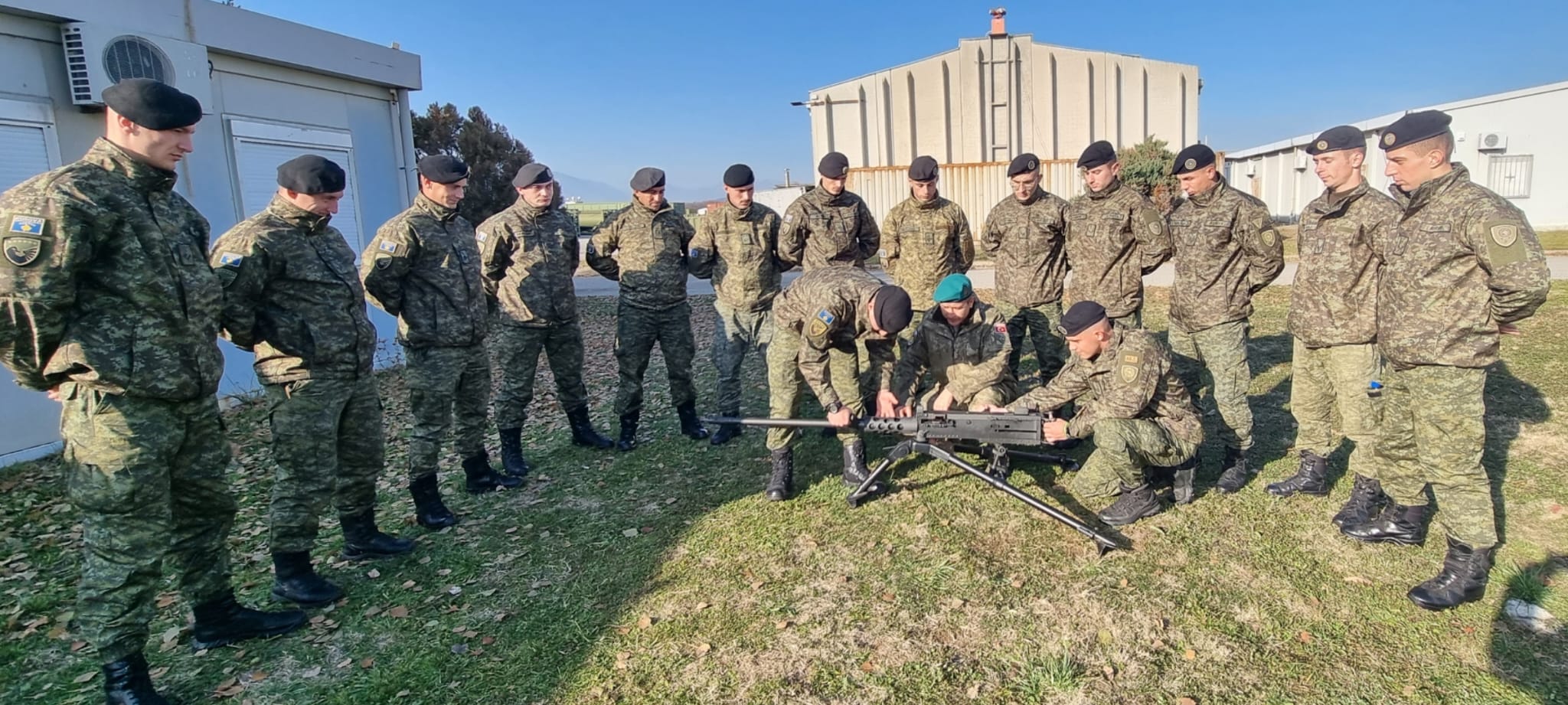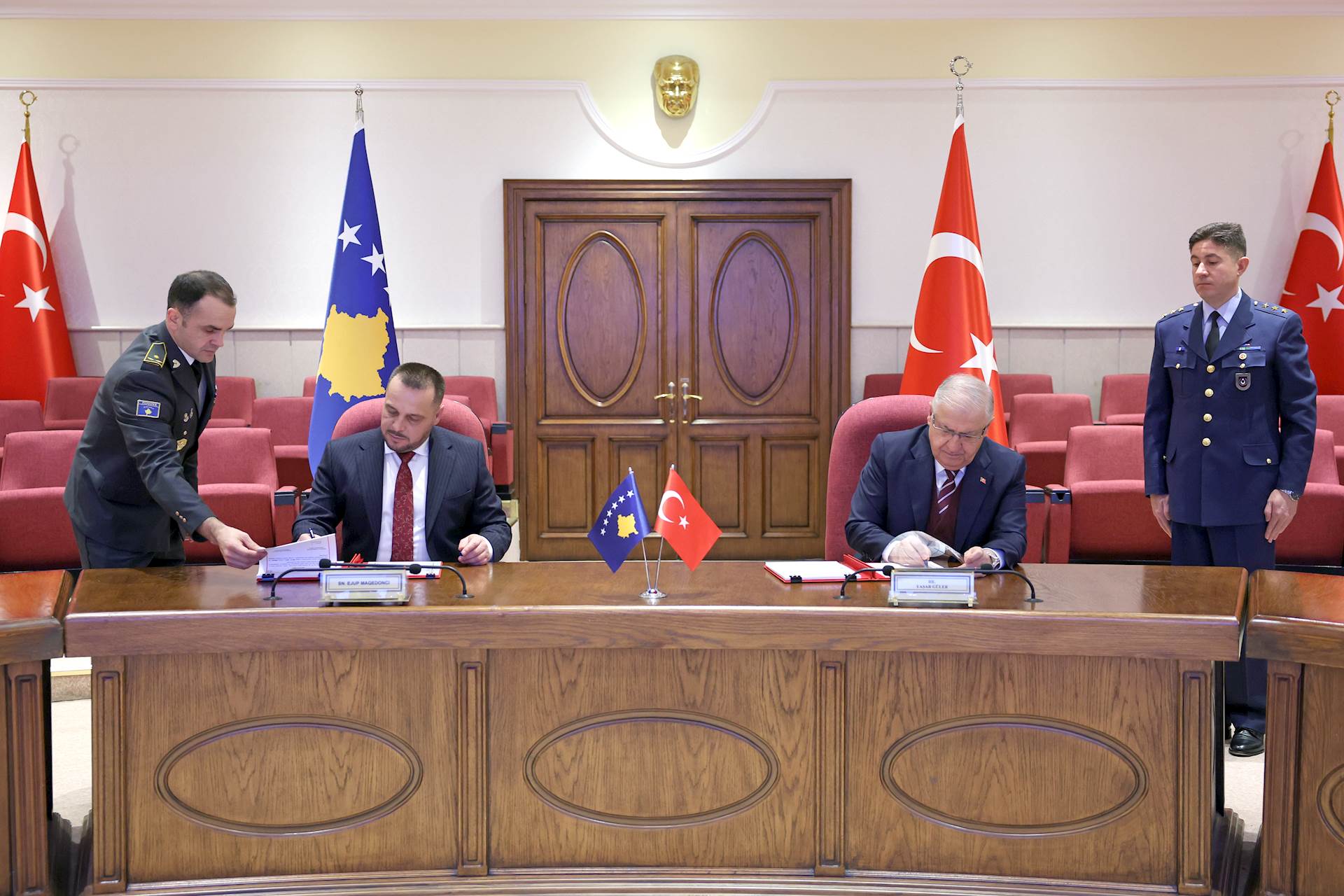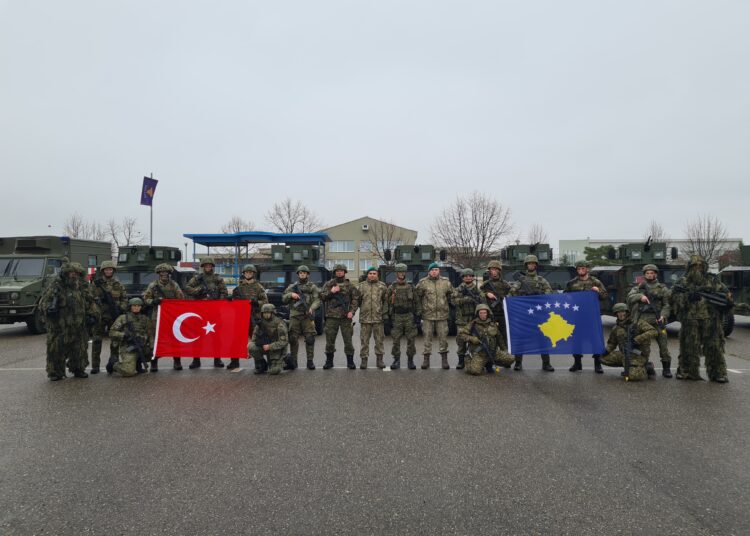Levent Kenez/Stockholm
The Turkish Armed Forces have intensified their efforts to train members of the Kosovo Security Force (KSF), showcasing a growing military partnership between the two countries. This collaboration aims to enhance Kosovo’s defense capabilities amid regional security challenges and ongoing tensions with Serbia.

On December 26, the Turkish contingent in Kosovo, deployed as part of the NATO-led Kosovo Force (KFOR) peacekeeping mission, provided training to KSF personnel on the MK-19 automatic grenade launcher. This specialized training is the latest in a series of programs aimed at equipping Kosovo’s forces with advanced skills and operational readiness. On December 2-13, border patrol training was conducted and on December 4, training sessions on the use of 12.7 mm machine guns were held. Additionally, on October 20, Turkish forces provided mortar training to the KSF’s 3rd Regiment Command.

High-level visits between the two countries also saw a significant increase in 2024. On October 11, Turkish Defense Minister Yaşar Güler, accompanied by Chief of General Staff Gen. Metin Gürak, attended the NATO KFOR change-of-command ceremony. During the event, Turkish Maj. Gen. Özkan Ulutaş handed over command to Italian Maj. Gen. Enrico Barduani. This transition followed a year of Ulutaş’s leadership as KFOR Commander. Turkey assumed command of KFOR on October 9, 2023, marking the first time Ankara held this leadership role. With at least 780 troops, Turkey provides the second-largest contingent within KFOR.
Following the ceremony, Güler met with Defense Minister of Kosovo Ejup Maqedonci, where they held discussions on Turkey’s continued support for the continued development of Kosovo’s military. Güler also visited KSF Commander Lt. Gen. Bashkim Jashari, accompanied by Gen. Gürak.

Later in the month, on October 23, Güler and Maqedonci reconvened at the SAHA EXPO Defense and Aerospace Exhibition in Istanbul. During their meeting, the two ministers signed a military health cooperation protocol, further solidifying the broad scope of Turkey’s contributions to Kosovo’s defense capabilities and military modernization.

Turkey’s involvement in Kosovo’s defense efforts extends beyond NATO’s peacekeeping mission. In 2023, Kosovo purchased Turkish-made Bayraktar drones, significantly bolstering its surveillance and tactical capabilities. Prime Minister Albin Kurti hailed the addition of these drones, emphasizing Turkey’s crucial role in advancing Kosovo’s military modernization.
Kosovo aims to establish a self-reliant defense force with 5,000 active-duty soldiers and 3,000 reservists. The Turkish-Kosovar partnership has proven instrumental in this effort, offering training on advanced weapon systems, tactical operations and border security management.
In addition to defense initiatives, Turkish Foreign Minister Hakan Fidan visited Kosovo on September 7, 2024, where he held high-level meetings with the president and prime minister of Kosovo. During the visit, Fidan also met with KFOR personnel.

Turkey and Kosovo previously signed a military framework agreement during Kosovar Defense Minister Ejup Maqedonci’s official visit to Ankara on January 29-30. The agreement laid the groundwork for deepened military cooperation, encompassing increased arms sales from Turkey to Kosovo, joint military exercises and expanded training programs for Kosovar military personnel.
The recent surge in military training activities conducted by Turkish forces in Kosovo can be seen as the practical implementation of this agreement on the ground. These efforts not only reflect the growing partnership between the two nations but also highlight Turkey’s role in enhancing Kosovo’s defense capabilities.
Framework agreements signed by Turkey with partner nations typically outline broad cooperation in the military domain. They include provisions for joint exercises, peacekeeping missions, humanitarian aid, counter-piracy initiatives and defense industry collaboration. Additionally, these agreements facilitate the exchange of military intelligence, logistical support and resources, either as grants or through structured payments.

Despite international recognition by countries such as Turkey, the United States and most EU members, Kosovo’s sovereignty is still contested by Serbia. Belgrade continues to claim Kosovo as part of its territory, with tensions often flaring along their shared border.
The Kosovo War of 1998-1999 led to the deaths of over 10,000 people, mostly ethnic Albanians, and displaced more than one million individuals. The conflict was fought between the forces of the Federal Republic of Yugoslavia (Serbia and Montenegro), which had controlled Kosovo prior to the war, and the Kosovo Liberation Army, a separatist militia, composed of ethnic Albanians. The war ended when NATO intervened, launching airstrikes in March 1999 that forced Yugoslav forces to withdraw from Kosovo.
On February 17, 2008, Kosovo declared independence from Serbia, which continues to reject its sovereignty.
Despite efforts to normalize relations through an EU-mediated dialogue process between Belgrade and Pristina initiated in 2011, tensions remain high. Recent escalations, including the September killing of a Kosovar policeman and subsequent violence, underscore the fragile peace in the region.
A new crisis emerged in September after a Kosovar policeman was killed by ethnic Serbs living in the country, resulting in the death of three Serbs. Although the tension later eased, the region still faces the risk of an escalation.












